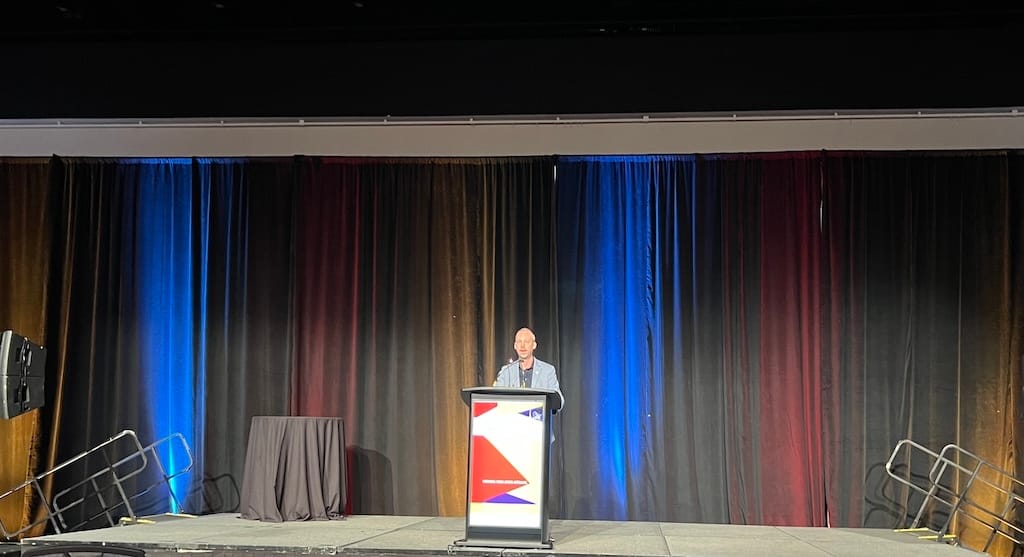WISPA Not Done Working to Ease Wireless Participation in BEAD
The group is working on model legislation for states, its state advocacy manager said.
Jake Neenan

LAS VEGAS, Oct. 16, 2024 – Just because the rules of the Infrastructure Investment an Jobs Act’s broadband grant program are mostly figured out doesn’t mean WISPA is done working to make it easier for small and wireless broadband providers to participate.
Steven Schwerbel, state advocacy manager for WISPA, said that the group is drafting model legislation to take to state legislatures that would ease tax burdens on build outs and make conditions generally more favorable for smaller ISPs looking to participate in theBroadband Equity, Access, and Deployment program.
“We will be pursuing that model legislation in a set of targeted states to make the tax implications of the kinds of equipment you buy and the kinds of activities you undertake more cost effective, to reduce the tax burden on buildouts, and to make sure that you have the regulatory policy climates that you need to be able to succeed,” he told members here at WISPAPALOOZA.
The $42.5 billion program initially dealt a blow to wireless ISPs, with its preference for fiber and by leaving the classification of fixed wireless broadband via CBRS – the band with a tiered sharing system many WISPs use – in limbo.
But that’s softened since the program’s rules were announced in 2022: CBRS is now lumped in with exclusively licensed spectrum, thus protected from overbuilds and potentially eligible for grants, provided it meets minimum speed requirements, and the Commerce Department has issues draft guidance on using fixed wireless on unlicensed spectrum in the toughest to reach areas.

WISPA leadership emphasized that while the group is still focused on wireless advocacy, the group is interested in continuing to represent smaller ISPs as more of them add fiber into their mix of offerings.
“We’re not one-trick ponies,” David Zumwalt, the group’s CEO said.
“When you’re dealing with wired infrastructure, we recognize there are advocacy opportunities there,” he said. “We’re looking for ways to engage on that, because we know that you care about that.”









Member discussion